
About the Department
Profile
The Department of Information Technology was established in 1999 with a B.Tech Degree Program. The department has highly qualified, committed and well experienced faculty members with varied specializations. The faculties are involved in organizing and participating in several seminars, conferences and workshops. They have also published research papers in various national and international journals, presented papers in conferences in India. Over the years, the department has become a center of excellence, providing in-depth technical knowledge and opportunities for innovation and research, with well-equipped computer facilities.
Faculty and Students are encouraged to become members of professional societies like Computer Society of India, ISTE, etc. Periodic guest lectures and workshops are conducted for the students to supplement their curriculum. The Department has produced University Ranks in the Anna University. All Eligible students are placed in leading software and core companies like CTS, WIPRO, HCL, INFOSYS, etc. through campus recruitment. Some of them pursue higher Studies in reputed National and International Universities.
Objective
To be centre of excellence in technical higher education, research, and support services, capable of making significant contribution to individual and societal empowerment.
Vision
To disseminate knowledgeable professionals with academic excellence to exhibit technical expertise with innovative thoughts for the betterment of the nation and the world.
Mission
Program Educational Objectives (PEOs)
Graduates will be able to
Program Outcomes (POs)
Program Specific Outcomes (PSOs):
Lab Facilities
Data Structures and Algorithms Laboratory
The Data Structures and Algorithms Laboratoryprovides students with hands-on experience in implementing and analyzing fundamental data structures and algorithms. In this lab, students will work with key structures such as arrays, stacks, queues, linked lists, trees, and graphs, and implement sorting and searching algorithms. They will learn to evaluate algorithm efficiency using time and space complexity analysis. The lab focuses on problem-solving techniques and optimizing solutions using appropriate data structures and algorithms. By the end of the lab, students will have a strong foundation in designing efficient algorithms and applying them to solve real-world computational problems.
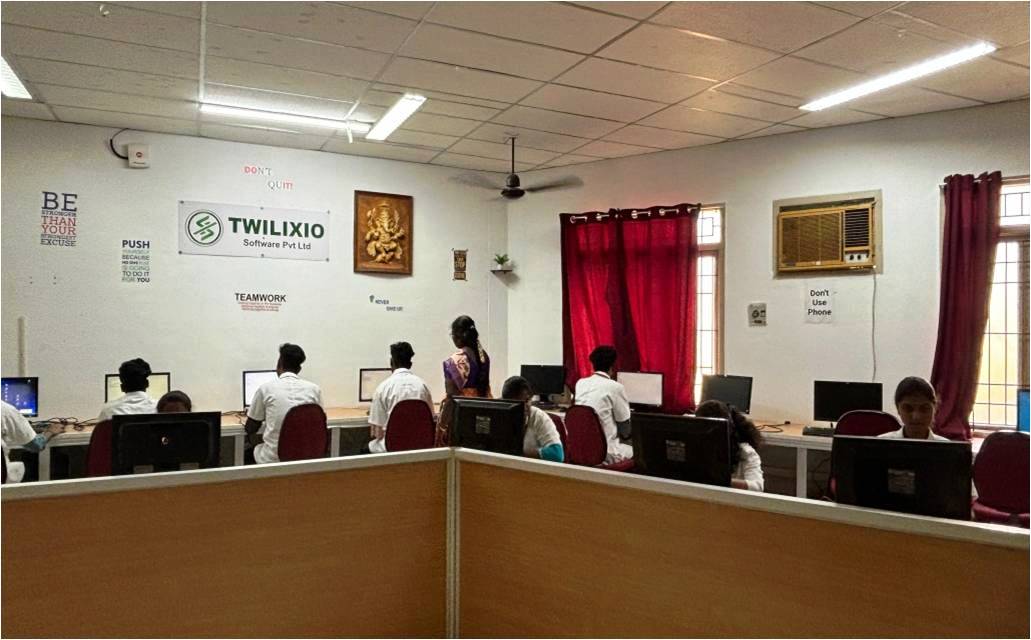
Object-Oriented Programming (OOP) Laboratory
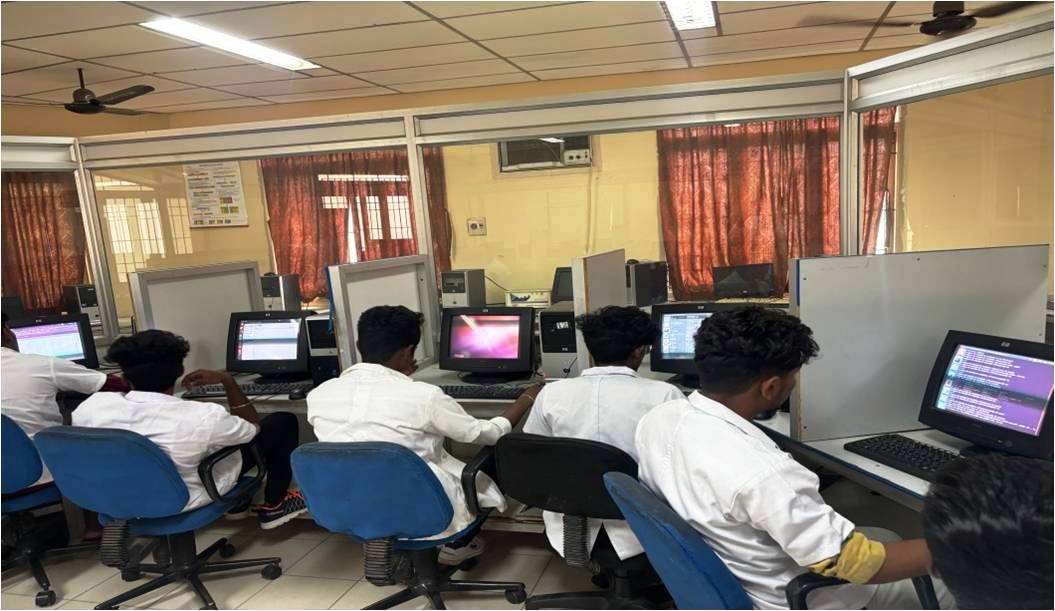
The Object-Oriented Programming (OOP) Laboratory provides students with hands-on experience in applying object-oriented principles to software development. In this lab, students will learn to design, implement, and test programs using core OOP concepts such as encapsulation, inheritance, polymorphism, and abstraction. They will work with programming languages like Java, C++, or Python to create modular, reusable, and maintainable code. Through practical assignments, students will develop the skills to design object-oriented solutions to real-world problems and gain proficiency in using OOP to build efficient software systems.
Data Science Laboratory
The Data Science Laboratory provides students with hands-on experience in analyzing and interpreting data using various data science tools and techniques. In this lab, students will work with programming languages like Python and R, utilizing libraries such as Pandas, NumPy, Matplotlib, and Scikit-learn for data manipulation, visualization, and machine learning. Students will learn to clean, preprocess, and analyze real-world datasets, and implement algorithms for classification, regression, and clustering. By the end of the lab, students will have practical skills in data analysis and machine learning, preparing them for real-world data-driven decision-making.
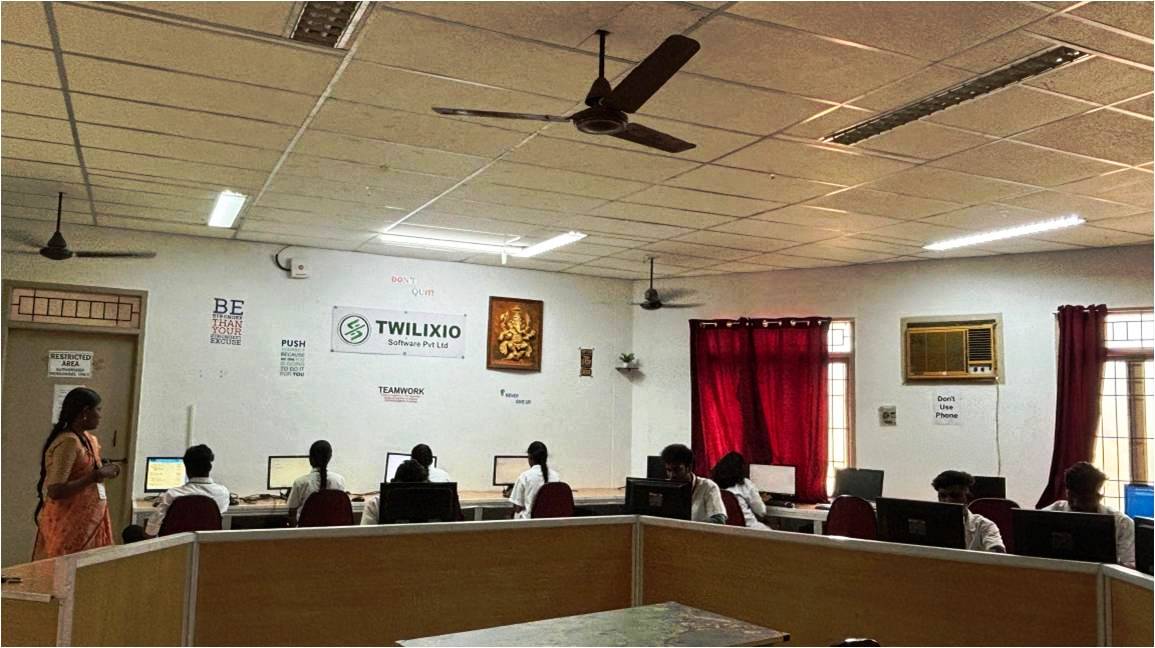
Operating Systems Laboratory
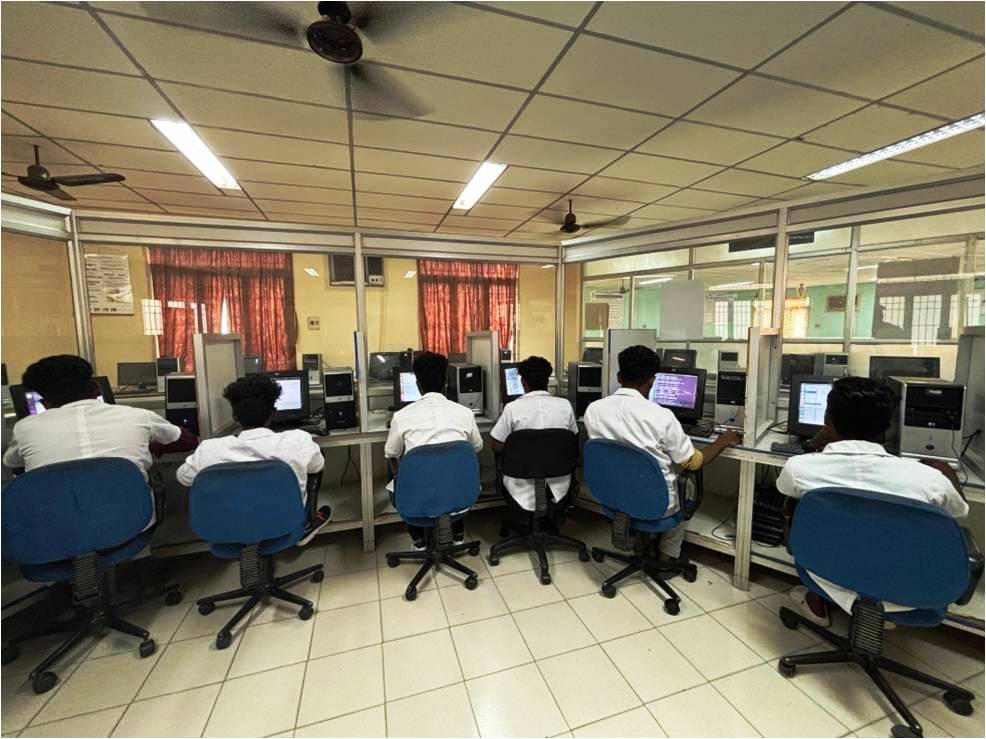
TheOperating Systems Laboratory provides students with hands-on experience in understanding and working with core operating system concepts. In this lab, students will explore process management, memory management, file systems, and system-level programming through experiments on popular OS platforms like Linux and Windows. They will implement and analyze system calls, process synchronization, and memory allocation techniques. By the end of the lab, students will have practical skills in working with operating systems and understanding how they manage hardware resources and support applications.
Database Management System (DBMS) Laboratory
The Database Management System (DBMS) Laboratory provides students with hands-on experience in designing, implementing, and managing databases. In this lab, students will learn how to create and manipulate databases using SQL, design relational schemas, and implement queries for data retrieval, insertion, updating, and deletion. The lab covers essential topics like normalization, indexing, transactions, and database security. Students will work with popular database systems such as MySQL, PostgreSQL, or Oracle, and gain experience in building and managing both small and large-scale databases. By the end of the lab, students will have a solid understanding of how to efficiently design and interact with databases, preparing them for real-world database management tasks and application development.
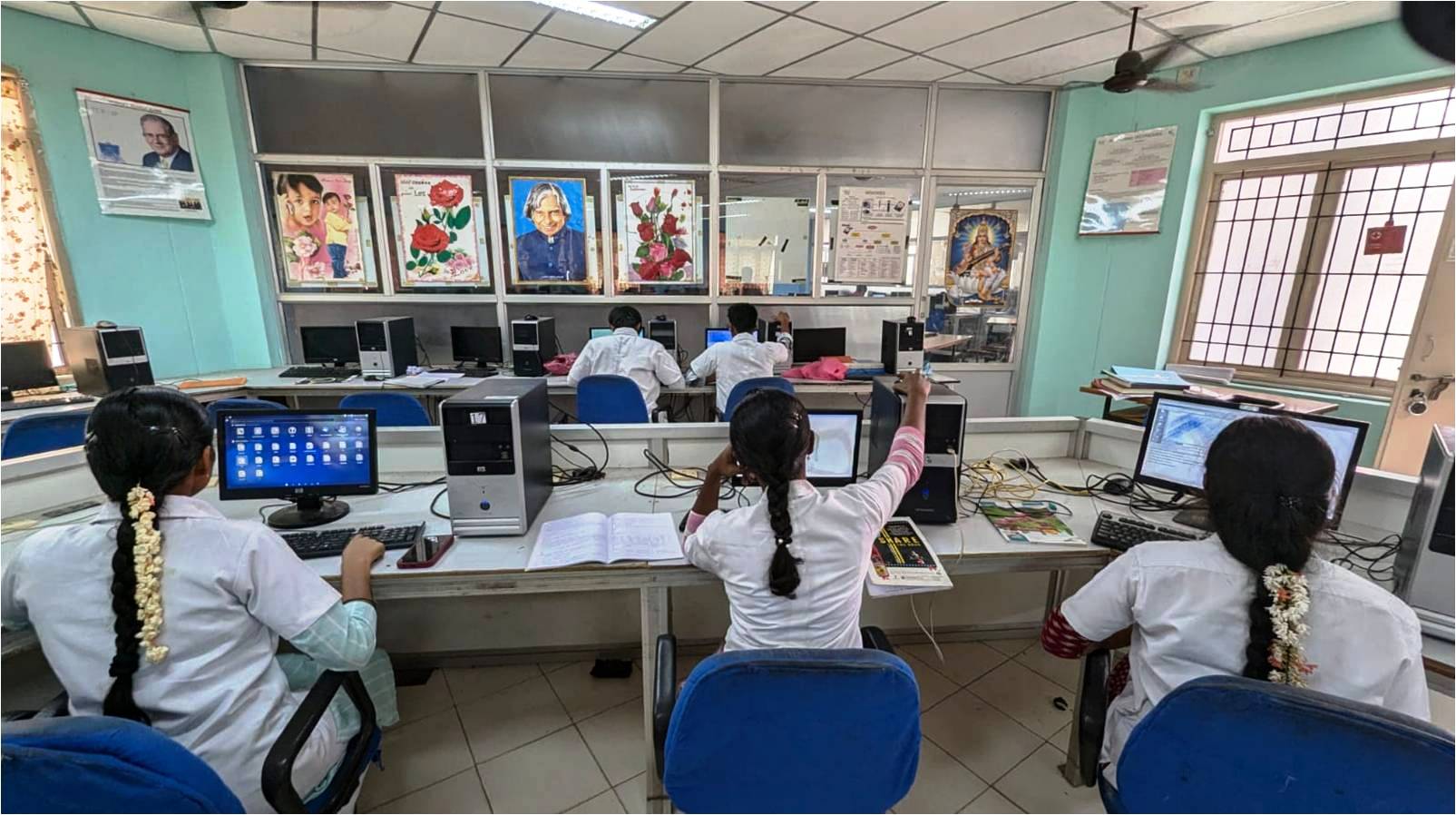
Full Stack Web Development Laboratory
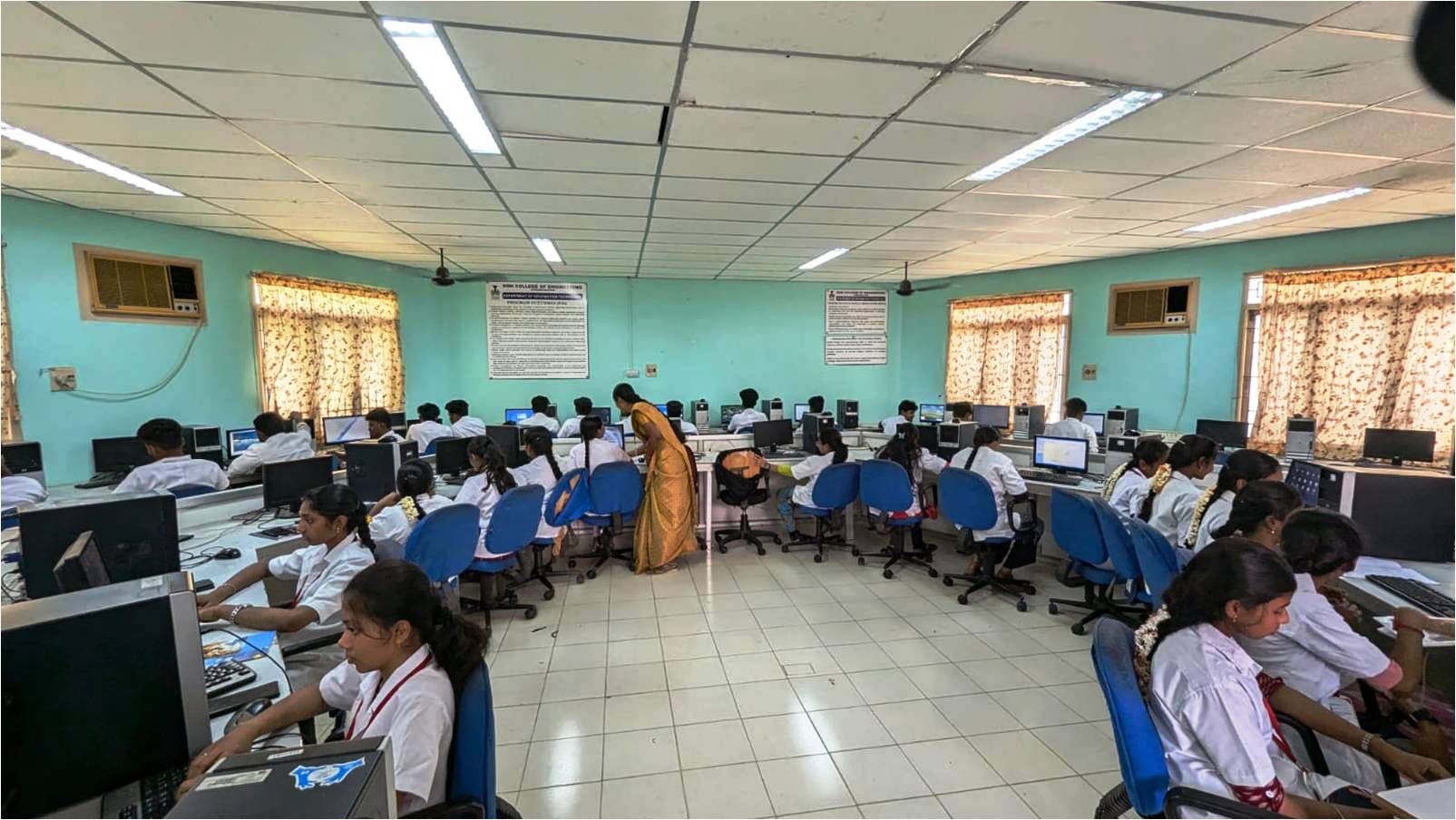
TheFull Stack Web Development Laboratory provides students with hands-on experience in building dynamic, end-to-end web applications. In this lab, students will learn both front-end and back-end development techniques using technologies like HTML, CSS, JavaScript, React for front-end, and Node.js, Express, and MongoDB for back-end development. Students will also work with databases, APIs, and version control systems like Git to create interactive, data-driven websites. Emphasis is placed on building responsive, user-friendly interfaces and managing server-side logic and database operations. By the end of the lab, students will be able to develop and deploy full-stack web applications, gaining the skills needed for modern web development.
Mobile Application Development Laboratory
The Mobile Application Development Laboratory provides students with practical experience in designing, developing, and deploying mobile applications for platforms like Android and iOS. In this lab, students will learn to use programming languages such as Java, Kotlin, or Swift, along with mobile development frameworks like React Native or Flutter, to create interactive and responsive mobile apps. Students will work on key concepts like UI/UX design, database integration, and mobile app testing. By the end of the lab, students will have the skills to develop, debug, and deploy mobile applications, preparing them for real-world mobile development projects.
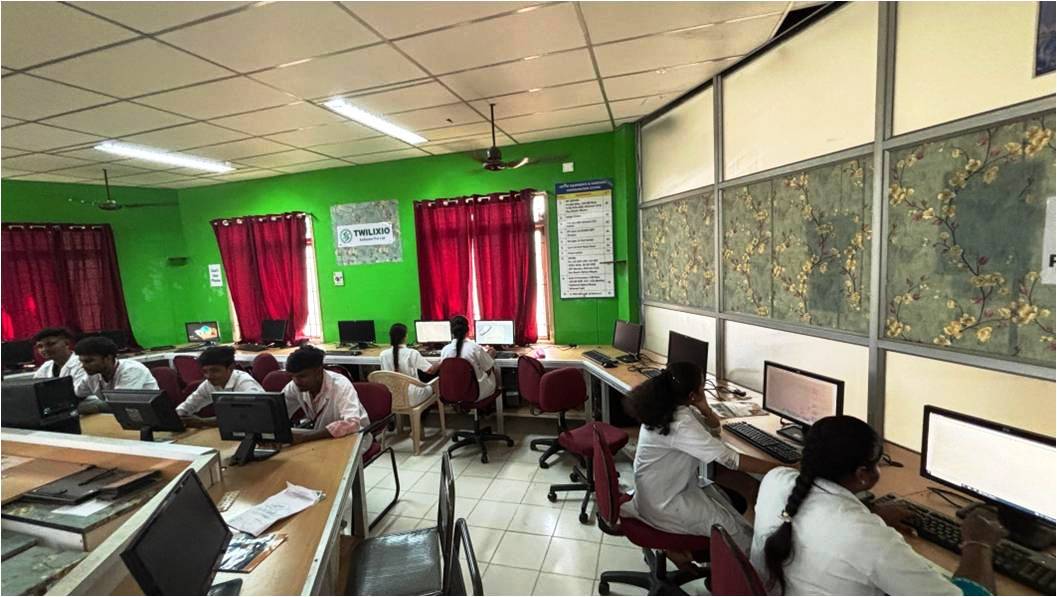
List of Software’s in IT Laboratory
| S.No | Software |
| 1 | Turbo C, C++ |
| 2 | Visual Basic 6.0 |
| 3 | Linux 7.2 |
| 4 | Visual Studio Dot Net 2000 |
| 5 | MS Office XP |
| 6 | Base OS – windows xp prof.sp2 |
| 7 | Windows 2003 Server |
| 8 | Sql Server 2005 |
| 9 | Web Logic Server |
| 10 | Macro Media Flash MX |
| 11 | Mcafee Anti Virus 8.5i |
| 12 | Smart Draw Diagram Tools |
| 13 | Photoshop CS3 |
| 14 | Visual Studio 6.0 |
| 15 | Oracle 11g |
| 16 | Quick Heal Antivirus Internet Security Admin Control |
List of Computers & Equipment’s in IT Lab Laboratory
| S.No | Major Equipments | |
| 1 | HP Scanjet | 3 |
| 2 | WIPRO Netpower1110 (Server) – PC | 1 |
| 3 | TVS 345 MSP Printer | 3 |
| 4 | HP – Net Server (TC 2100) - PC | 1 |
| 5 | HP LaserJet 2200 Printer | 2 |
| 6 | HP Compaq DX5150MT – PC | 28 |
| 7 | HP Compaq D290MT – PC | 33 |
| 8 | ML 350G4 HP SERVER – PC | 1 |
| 9 | HP Compaq DX 2060MT – PC | 5 |
| 10 | HP Compaq DX2480 – PC | 2 |
| 11 | HP DX2480 – PC | 9 |
| 12 | HP 15.6” TFT Monitor | 35 |
| 13 | HP 15.6 inch Wides Screen LCD Monitor | 35 |
| 14 | LCD Projector (BenQ) | 1 |
Renowned Alumni

Batch : 2015-2019
Organization : Application Analyst, Oracle

Batch : 2015-2019
Organization : Cognizant Technology Solutions

Batch : 2016-2020
Organization : Senior Lead Engineer, IQVIA

Batch : 2008-2012
Organization : Co Founder, Code Snippers
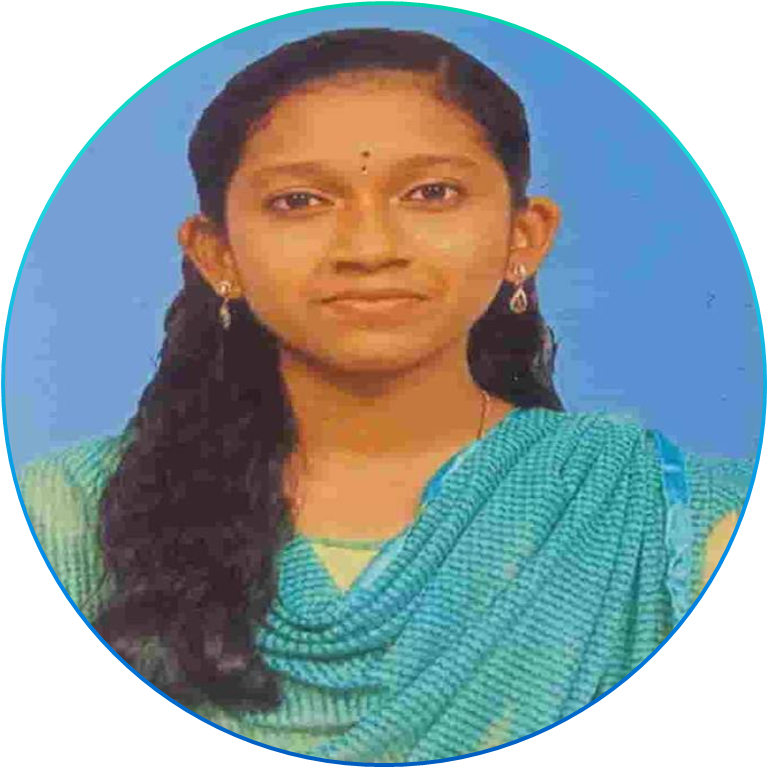
Batch : 2019-2023
Organization : KGiSL PVT LTD
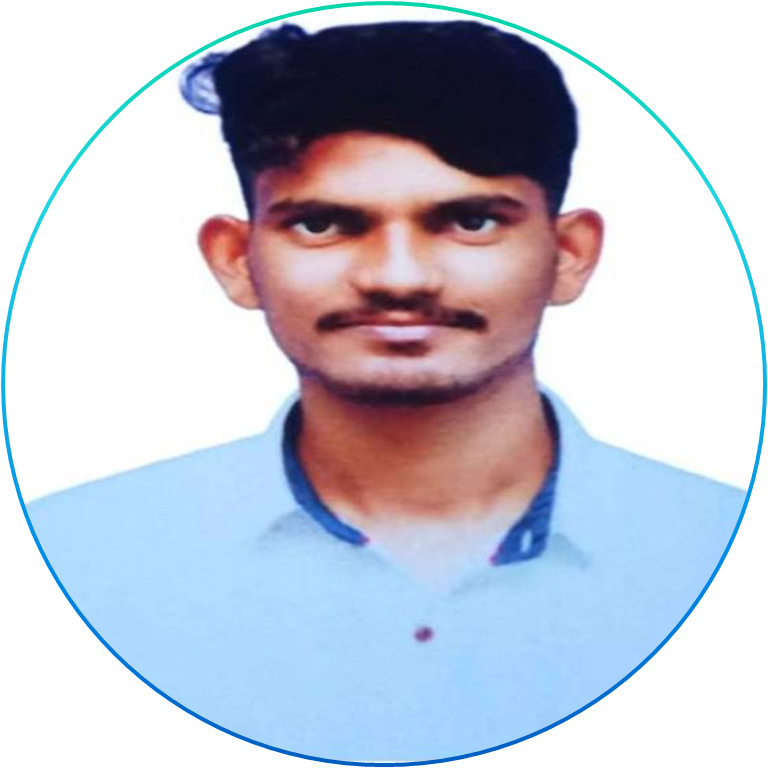
Batch : 2019-2023
Organization : ITTT BANGALORE
Value Added Programs
Workshops / Conferences / Seminars / Symposium
| S.No | Value Added Programme |
| 1 | Basics of Python Programming |
| 2 | AI & Green Skills |
| 3 | Game Development |
| 4 | Data Warehousing |
| 5 | Data Analytics |
| 6 | Mobile Application Development |
| 7 | Neural Networks & Machine Learning |
| 8 | AngularJS & NodeJS |
| 9 | Enterprise Java |
| 10 | .Net Application development using C# |
Industrial Visits & In-plant Training
| S.No | Name of The Company |
| 1 | CHIPS SOFTWARE |
| 2 | DURGATECH |
| 3 | ENTHUTECH |
| 4 | INFOCOM SOFTWARE |
| 5 | BLUEHORIZON INFOTECH |
MoU with Companies
| S.No | Name of the organization |
| 1 | TWILIXIO SOFTWARE |
| 2 | UNIQDA SOFTWARE TECHNOLOGIES |
| 3 | DURGATECH |
| 4 | BRIGHT SYSTEMS |
| 5 | SHINE IT SOLUTIONS |
© 2025 | SSM College of Engineering, All Rights Reserved.